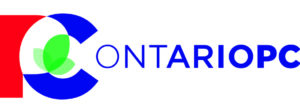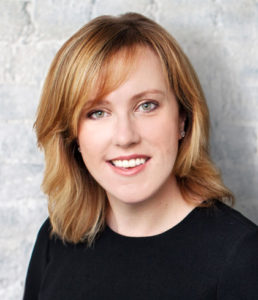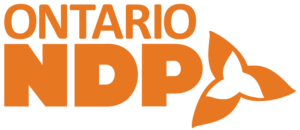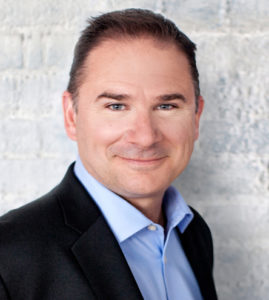Now that the writ has officially dropped, Ontario is into a 28-day sprint to Election Day. As the leaders of Ontario’s three main political parties hit the campaign trail, the question of what it will take to win is front of mind for all.
Counsel’s Philip Dewan, Stephanie Gawur and Brad Lavigne are no strangers to the hustings – we asked each for their take on what their own party needs to do to walk away victorious.
The Liberals
 Make no mistake – this election will be extremely challenging for Ontario Liberals. They face multiple hurdles: a widespread desire for change after 15 years of Liberal government, the retirement of several high-profile Ministers, plenty of accumulated baggage – including the gas plant scandal and concerns around fiscal management – and near record low approval ratings for Premier Kathleen Wynne.
Make no mistake – this election will be extremely challenging for Ontario Liberals. They face multiple hurdles: a widespread desire for change after 15 years of Liberal government, the retirement of several high-profile Ministers, plenty of accumulated baggage – including the gas plant scandal and concerns around fiscal management – and near record low approval ratings for Premier Kathleen Wynne.
Having come from behind in the last two elections, can the Liberals pull off a three-peat?
The government’s recent Budget unveiled a key tactic. By reversing years of fiscal effort and committing to a string of deficits, they freed up funds for programs appealing to progressive voters – pharmacare for children and youth, seniors’ health initiatives, free child care from age two-and-a-half to kindergarten, and much more.
The 2018 Budget forecasts a $6.8 billion deficit, while the Auditor General projects double that. A challenge for the Liberals will be to sell the public on their version of the books. It’s also an issue for the opposition parties, whose projections are built on the government’s numbers.
That’s one half of the strategy – to lure away NDP-leaning voters. The other is to undercut PC support.
Liberals will sound the alarm on the impact of PC budget cuts on vital public services – health care, policing, education – while portraying leader Doug Ford as a false populist in league with rich backroom boys, á la Donald Trump.
The Liberals were instrumental in releasing a video of Ford promising to open the Greenbelt to developers – a position he quickly abandoned when the closed-door commitment was revealed – which directly brings into question Ford’s credibility as an “anti-elitist.” Similarly, the video of candidate Tanya Granic Allen’s anti-LGBT tirade that led to her ouster fueled concerns about Ford’s judgment in supporting “his friend” in the first place (while also widening a rift between social conservatives and the PC mainstream).
Expect more of the same. The Liberals’ fate depends on both halves of this two-pronged strategy bringing votes their way – but with the risk of driving progressive, anti-Ford sentiment to the NDP alternative if they fail to make a compelling case.
-Philip Dewan
 Philip Dewan
Philip Dewan
President
Philip Dewan has been a leading political advisor and public policy practitioner for more than 35 years. He has played critical roles in the election of two Ontario Premiers and helped shape the agenda on issues as diverse as the creation of centres of excellence in technology, the crafting of sustainable landlord-tenant legislation and the designation of the world’s largest urban Greenbelt. Read more about Phil.
The PCs
 With the latest polls consistently suggesting the Liberals face an uphill battle in this election, Ontario’s Progressive Conservative Party is heading into the election with the brightest hope for victory on June 7th. Of course, as we know, campaigns matter. With a month of public appearances and media coverage ahead, anything can happen. And with Doug Ford at the party helm, it will certainly be as interesting a road to the “promised land” as Ontarians have seen in many years.
With the latest polls consistently suggesting the Liberals face an uphill battle in this election, Ontario’s Progressive Conservative Party is heading into the election with the brightest hope for victory on June 7th. Of course, as we know, campaigns matter. With a month of public appearances and media coverage ahead, anything can happen. And with Doug Ford at the party helm, it will certainly be as interesting a road to the “promised land” as Ontarians have seen in many years.
Historically, Ford is more prone to the occasional political gaffe than his seasoned competitors. Staying on message will be essential to avoid losing focus on commitments to smaller government and fiscal responsibility – both of which are resonating with voters eager for change. Ford must remain disciplined and stick to his guns on policy and candidate-related matters. The recent Greenbelt and Tanya Granic Allen reversals have scuffed his credibility, and that’s not a trend the PCs want to see continue.
As recent provincial elections have shown, Ford and the PCs will need to avoid taking the Liberal bait and stand strong against their opponents’ attempts to use Ford’s past words against him. Despite the Liberals’ best efforts, the PCs are maintaining a strong lead in the polls, suggesting that many voters are fatigued by the Liberals’ almost 15 years in power. Ford simply needs to hammer home their past scandals and misfires to secure the Premiership.
To truly take his campaign home, Ford needs to release a platform that gives voters a concrete road map to a PC-led future. We can expect to see Wynne and Horwath pressing on Ford’s commitment to a four per cent, across-the-board cut, so he would do well to present a fully costed platform, but at the same time remembering how well the slash-and-burn style policies went over for Hudak.
-Stephanie Gawur
 Stephanie Gawur
Stephanie Gawur
General Manager
Stephanie serves as the General Manager at Counsel. She has over ten years of federal government experience, non-profit sector activity and political organizational involvement. As a political organizer, Stephanie has worked on municipal, provincial, and federal election campaigns in a variety of roles including Campaign Manager and Regional Organizer – including Toronto Mayor John Tory and Interim PC Leader Vic Fedeli. Read more about Steph.
The NDP
 The conditions in this election campaign for Andrea Horwath and the NDP have never been more promising.
The conditions in this election campaign for Andrea Horwath and the NDP have never been more promising.
With an unpopular incumbent Premier and nervousness around Doug Ford’s populist leadership and ever-changing positions, Horwath’s message that we don’t have to “choose between bad and worse” is one that has a chance to resonate in every corner of the province.
Horwath has enjoyed strong personal approval ratings for some time, but in order to translate that support into votes, voters need to see her and the NDP as a viable option. Simply put: can she win?
She has taken two important steps to address this challenge.
The first is that she has built the biggest campaign war-chest in Ontario NDP history, meaning more resources to persuade and motivate the populace online and on TV. When people see the leader and hear her message, they are more likely to support the party.
The second is that with a bold and progressive platform focused on things that matter to people, like dental care, ending hallway medicine and better transit, Horwath’s campaign is offering voters hope, rather than fear. The platform united the NDP base and avoids potential slippage in traditional party support that Horwath suffered in the 2014 campaign.
This is a change election. The polls consistently show that millions of voters are signaling that it’s time to replace the Wynne government. Over the next few weeks, voters will be asking themselves: what kind of change do we want?
With the NDP’s momentum and polls currently showing Horwath heading into second place behind Doug Ford, Ontario may be headed for a Blue vs. Orange election contest, the likes of which this province has never seen before.
-Brad Lavigne
 Brad Lavigne
Brad Lavigne
Principal and Vice President
Senior NDP Campaign Advisor
Brad Lavigne has over 20 years of communications, government relations, and political experience. Brad served as the New Democratic Party’s National Campaign Director in the 2011 general election that resulted in the party’s best election result in its 50-year history, becoming Canada’s Official Opposition for the first time. Read more about Brad.

